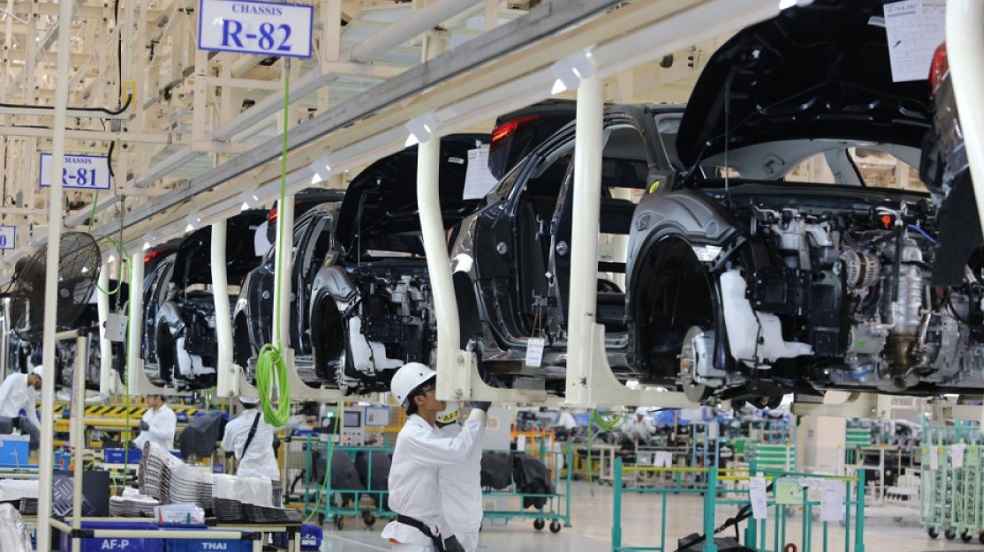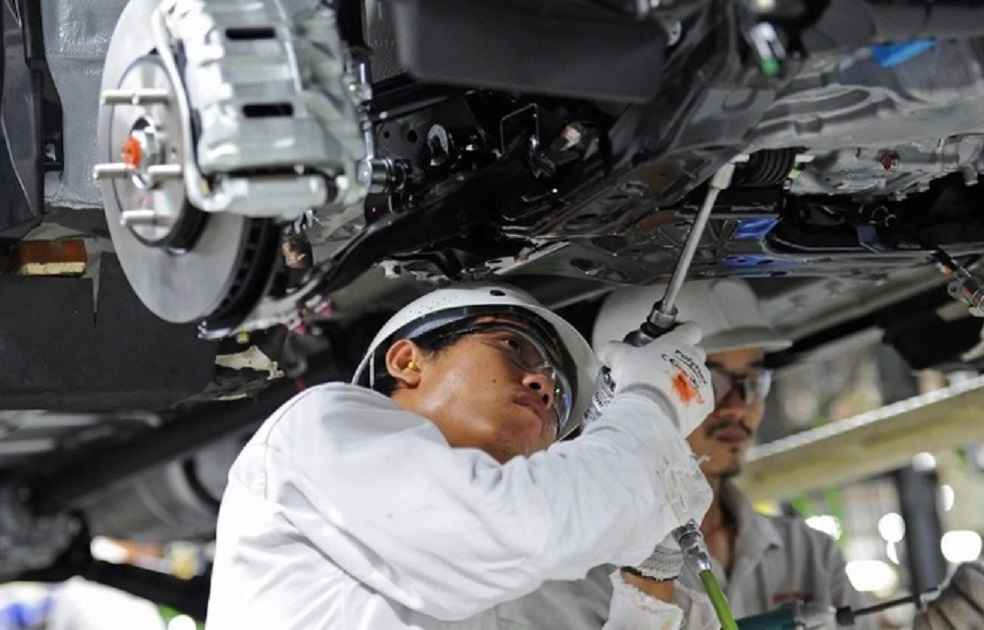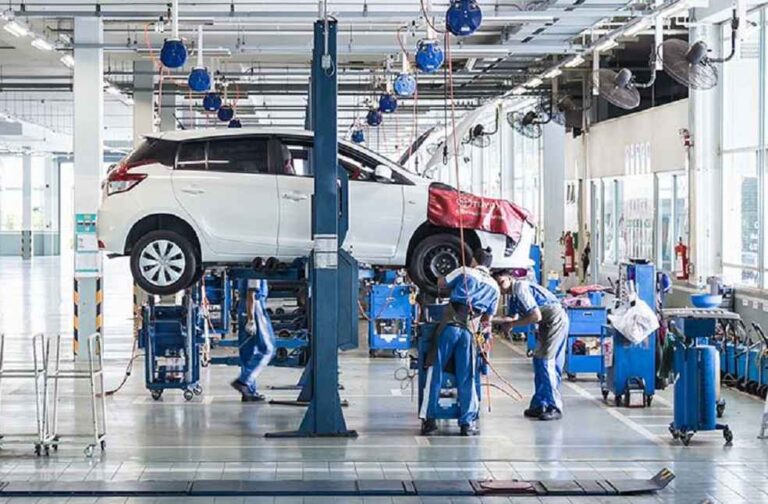The Thai auto industry is under growing strain from international trade measures, rising competition from Chinese automakers, and stricter environmental and safety regulations, according to a new report from Kasikorn Research Center (KResearch).
The think tank urged industry stakeholders to accelerate adaptation to maintain competitiveness amid rapid market shifts.
Dr. Rujipan Assarat, Assistant Managing Director at KResearch, said that while Thailand exports a limited volume of vehicles to the United States, Washington’s Section 232 import tariffs could have far-reaching consequences.
“These tariffs may indirectly impact Thai exports as Japanese and South Korean automakers redirect supply to other markets, heightening competition globally,” she explained.

Directly, the U.S. tariffs affect Thai auto parts exports, which account for about 26% of Thailand’s total parts shipments. Thailand retains a comparative advantage in small tire manufacturing and benefits from exemptions under the Section 232 Import Adjustment Offset covering roughly 12% of its parts exports, significantly higher than Japan’s 3%.
Hathaiwankul Tungkatheerakul, Senior Research Officer, noted that the aggressive expansion and pricing strategies of Chinese automakers are reshaping the competitive landscape. “Chinese electric vehicles are rapidly capturing consumer attention, both in Thailand and abroad, putting pressure on local manufacturers,” she said.
She also pointed to Australia’s upcoming 2025 CO₂ emission and braking system standards, which will increase demand for hybrid vehicles while reducing demand for traditional internal combustion engine (ICE) models, currently Thailand’s primary export category.

Dr. Krit Sitathanee, another Assistant Managing Director, added that Thailand’s decision to accelerate its Net Zero emissions target by 15 years places additional demands on the transport sector.
“Battery electric vehicles (BEVs) make up only 1.2% of the total vehicle fleet, and about 65% of listed parts manufacturers have yet to set greenhouse gas reduction goals,” he said. “Nevertheless, larger firms have begun taking steps toward sustainability.”
KResearch recommends that automakers and parts suppliers revise their strategies to manage the combined challenges of U.S. trade policy, intensified competition from China, and stricter environmental rules among trading partners.
It advised the industry to prepare for declining ICE demand, scale up hybrid and plug-in hybrid (HEV and PHEV) production, and expand capabilities in BEV manufacturing to remain competitive in the evolving global market.
DON’T MISS | Ford to Invest ₹3,250 Crore Reviving India Plant for Global Exports





